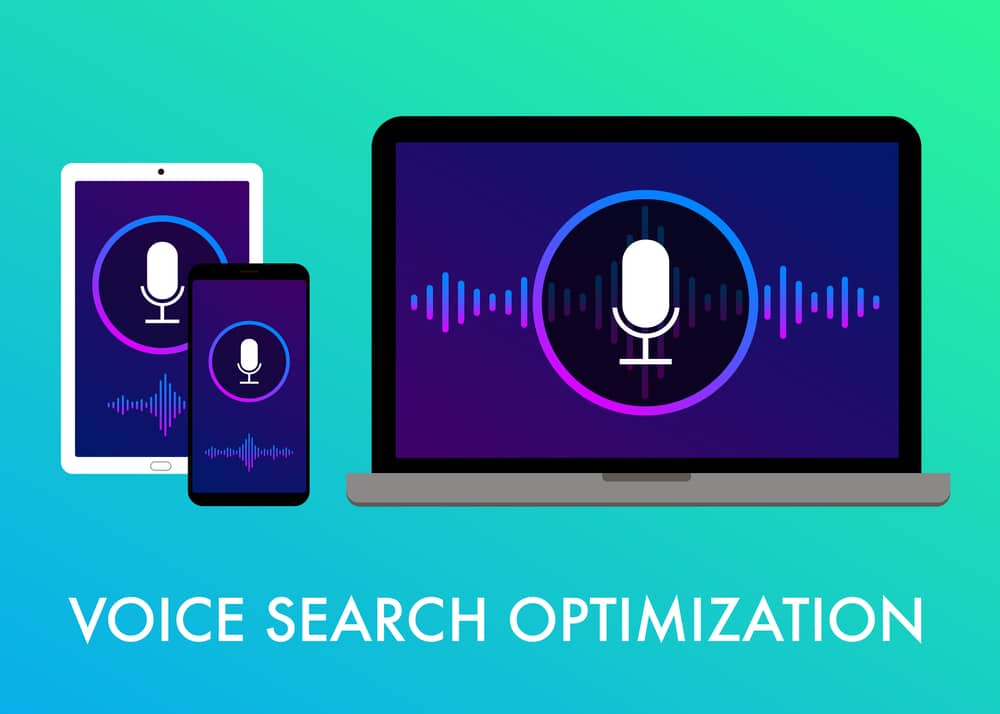Voice Search Optimization
Make Your Business the Answer to Spoken Queries
Understanding Voice Search Behavior
Voice search has changed how people interact with search engines. Instead of typing short, fragmented keywords, users now ask full questions or give commands in a conversational tone. This shift impacts how search engines interpret queries and display results.
At K6 Digital Marketing, we analyze how people phrase their voice searches to help businesses adjust their content. When searching for direct answers, many voice queries begin with:






Users also tend to phrase searches more naturally and detailed, often expecting immediate, spoken responses.
A typed search for “best coffee shop Orlando” might change to “Where can I find a good cup of coffee near me?” when spoken. Content must be structured to match natural language patterns while aligning with search intent.
We help our clients optimize for this by:
- Identifying common voice search patterns in their industry.
- Adjusting content to provide direct, conversational answers.
- Structuring pages to be more beneficial for spoken responses, increasing the chances of appearing in voice search results.
This understanding shapes how we approach keyword targeting, content structure, and technical optimization to improve visibility in voice search.
Targeting Conversational Keywords for Voice Search Optimization
People speak differently than they type. Voice searches are often longer, phrased as complete questions, and structured to mimic everyday speech. This requires a shift in how keywords are selected and integrated into content.
We focus on identifying conversational keywords that align with how real people ask questions. Instead of short keywords like “voice search SEO,” we use longer, more natural phrases. For example, how do I optimize my website for voice search?
Our approach includes:
Researching Natural Language Queries: Using tools to find commonly asked questions in a given industry.
Focusing on Long-Tail Keywords: Prioritizing phrases that mirror how users speak.
Optimizing for Question-Based Searches: Structuring content to answer common voice queries directly.
Using these keywords increases the chances of your content appearing in featured snippets and voice search results. This is where search engines provide direct answers to spoken questions.

Adjusting keyword strategy to match conversational patterns, we help businesses become more discoverable in voice search.

Using these methods makes the content better for voice and traditional search. This helps search engines find and use relevant answers more quickly.
Creating Voice-Search Friendly Content
Voice search queries often seek immediate, direct answers. Search engines prioritize content that delivers concise responses while maintaining relevance to the broader topic. Structuring content effectively increases the likelihood of being featured in voice search results.
To improve visibility in voice search, we:
Use Clear and Direct Answers—The Content should respond succinctly to common questions while naturally expanding on details.
Incorporate FAQ Sections – Frequently asked questions formatted with natural language improve the chances of being surfaced in voice results.
Optimize for Featured Snippets – Search engines often read voice search answers from the highlighted summary box at the top of search results. Structuring answers with lists, tables, and bullet points makes it easier for search engines to recognize and use your content.
Improve Readability and Flow – Content should be easy to scan, with headings and subheadings breaking up key sections.
Implementing Voice-Search Aligned Schema
Search engines rely on keywords to understand website content and use structured data, known as schema markup, to interpret information more effectively.
What is Structured Data?
Structured data is a standardized format used to organize and classify webpage information so search engines can understand it more easily. It acts like a roadmap, helping search engines recognize different types of content—such as business details, product descriptions, or FAQs—to display them accurately in search results.
What is Schema Markup?
Schema markup is a type of structured data added to a webpage’s code to give search engines more context about the content. Think of it as a labeling system that helps search engines categorize and display information more effectively. For example, if you run a local coffee shop, schema markup tells search engines your business name, address, hours, and even customer reviews, making it easier for voice assistants to pull the correct details when users ask, “Where’s the best coffee shop near me?” Search engines struggle to understand certain content without schema markup, making your business less likely to appear in voice search results.
Why Does Schema Markup Matter for Voice Search?
Many voice searches rely on structured data to provide quick, spoken answers. When someone asks a voice assistant a question, the assistant pulls the most relevant response from search results—often prioritizing webpages that use schema markup correctly. Without it, even well-optimized pages may be overlooked. At K6 Digital Marketing, we ensure your website is optimized for voice search by implementing key schema types, including:
– FAQ Schema – This markup highlights frequently asked questions and their answers, making it more likely that voice assistants will pull your content when users ask related queries.
– Speakable Schema – This schema tells search engines which parts of your content are ideal for voice search, increasing the chances that your business will be the answer spoken aloud.
– Local Business Schema – Many voice searches are local, such as “Where’s the nearest car repair shop?” Local schema helps search engines display your business’s correct name, address, phone number, and hours in response to location-based searches.
Schema Markup is Not a One-Time Task
Search engines often change their algorithms. You must watch and update structured data over time to keep it practical. Many businesses find this technical work too much to handle. We take care of it for you. We make sure your schema is applied, updated, and maintained. This helps your business stay visible in voice search results. Using schema markup can help your website be the spoken answer when customers use voice assistants.
Testing and Monitoring Performance
Voice search optimization doesn’t stop once content is published. Search engines continuously refine how they process spoken queries, and performance must be tracked to ensure ongoing visibility. Without proper testing and adjustments, businesses risk losing ground in search results.
We use a combination of tools to monitor how well content performs in voice search:
1) Google Search Console – Identifies which queries are leading users to a site and highlights opportunities for improvement.
2) Google Rich Results Test – Confirms whether search engines correctly implement and recognize structured data.
3) Performance Analytics – Tracks engagement metrics to assess whether optimized content is surfacing in voice search results.
Businesses often lack the time or expertise to analyze these insights effectively. We provide ongoing monitoring and adjustments, ensuring that voice search strategies remain aligned with search engine updates. With continuous oversight, businesses can stay ahead of competitors and maintain strong search visibility.
Make Your Business Discoverable in Voice Search
When potential customers ask voice assistants for help, will your business be the answer they hear? Voice search isn’t just another SEO trend. It’s how more people find solutions, make decisions, and choose services. If your content isn’t set up for voice search, you are missing chances to connect with customers when they need you.
K6 Digital Marketing makes your business ready for the way people search today. We improve content for natural language searches. We use the correct structured data and watch performance closely. This helps you stay ahead of your competitors.
Voice search is growing, and waiting to adapt means losing visibility to businesses already taking action.
Let’s make sure your customers can find you when they need you.

